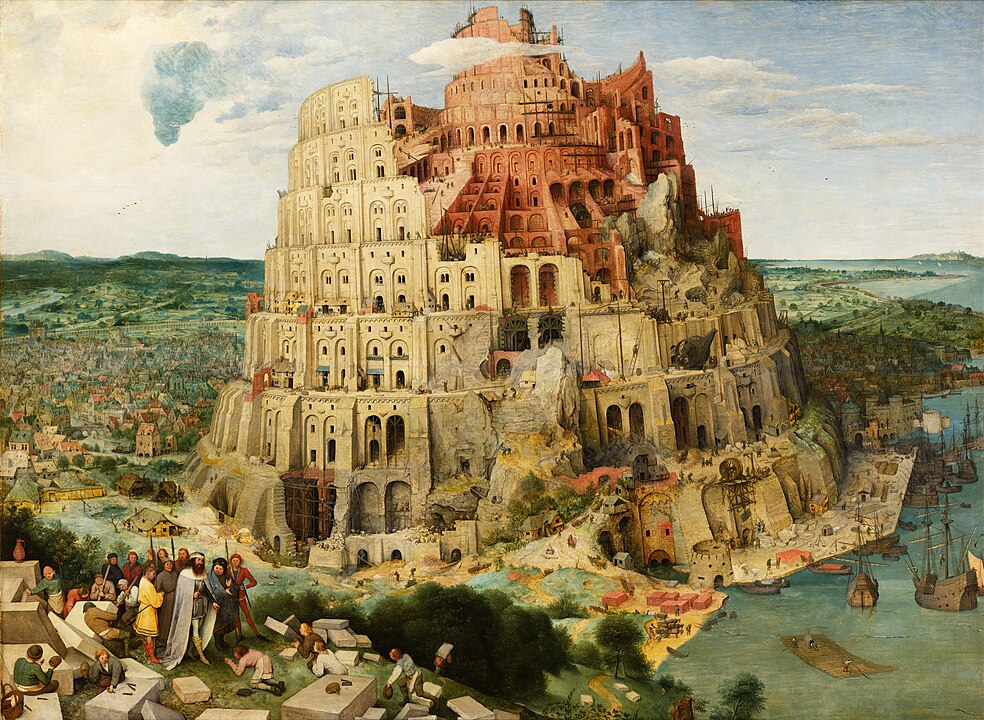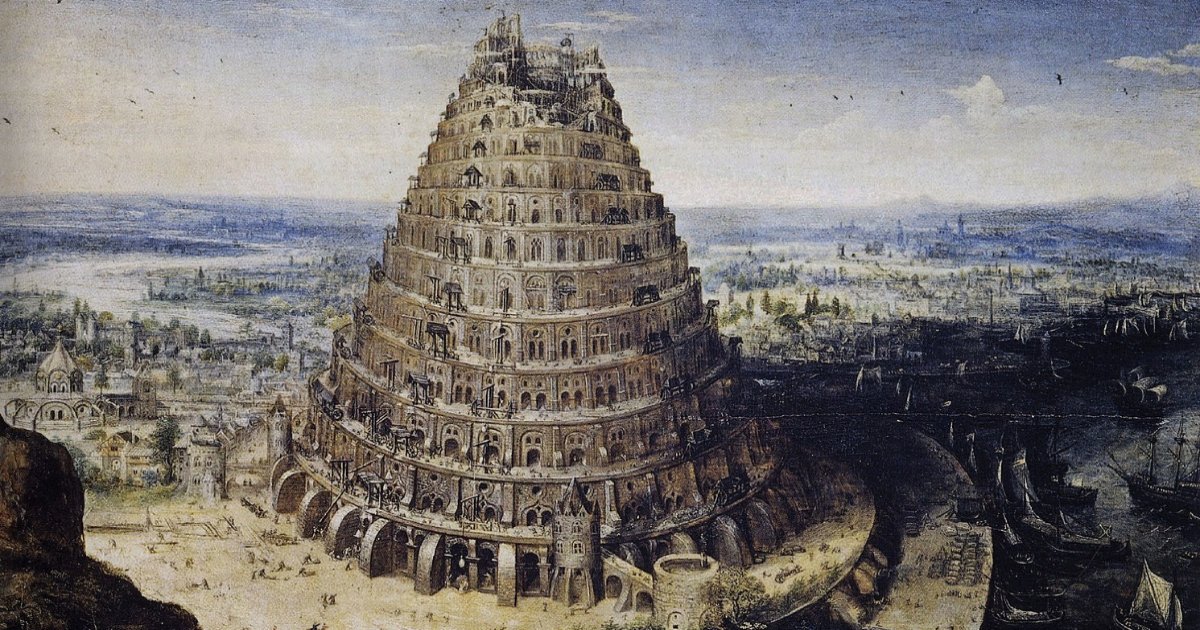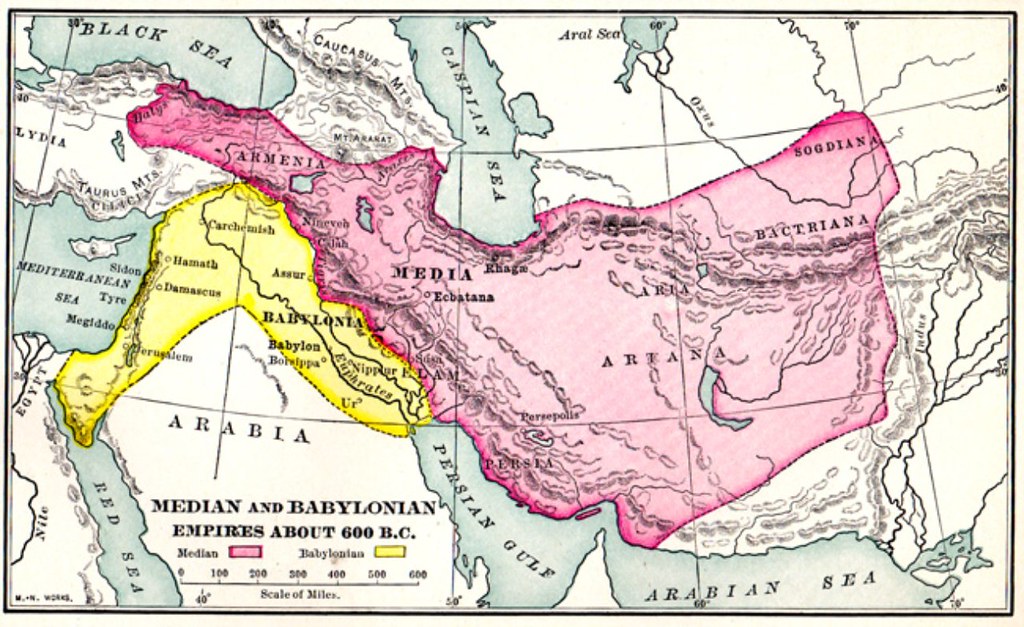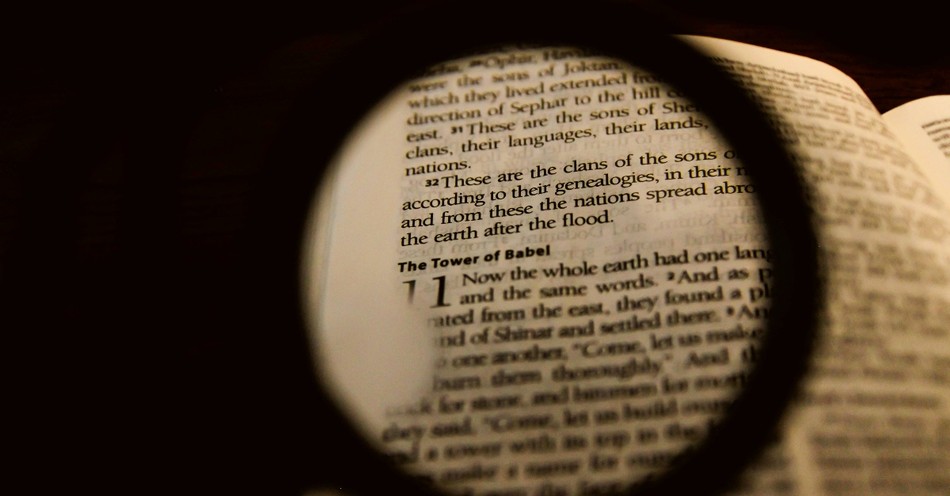The Tower of Babel is a biblical story found in the Book of Genesis, specifically in Genesis 11. According to the biblical narrative, after the Great Flood, people spoke a single language and migrated to the land of Shinar (Babylonia). There, they decided to build a tower that would reach the heavens, intending to make a name for themselves and prevent being scattered across the earth.
God, displeased with their pride and ambition, decided to confuse their language so that they could no longer understand each other. This linguistic confusion led to the scattering of the people across the earth, and the tower construction was halted. As a result, the place was called Babel, which means "confusion."
The story is often interpreted as a cautionary tale about the consequences of human pride and disobedience, as well as a theological explanation for the diversity of languages among humanity.
In this article, we’ll endeavor to discuss what was the Tower of Babel physically and spiritually, and why it matters to us today.
What Did the Tower of Babel Look Like?
Most likely, the Tower of Babel was something known as a ziggurat structure built by the people of Shinar (historians have not come to a conclusion as to the exact location of Shinar).
A ziggurat, a pyramid-like structure made of mudbrick (Genesis 11:3), often had ties with pagan religions such as those of the Babylonians and Marduk. Although Marduk didn’t really get his claim to fame until the 1800s BC (and Answers In Genesis places the construction of the Tower of Babel in 2200s BC), ziggurat structures started around 3,000 BC, well before the Tower of Babel construction.
Ziggurat structures undoubtedly had pagan roots, as they were built for the patron deity of that land. Nimrod (Genesis 10:8), Noah’s great-grandson and a mighty man or giant, who ordered the construction of the tower, likely didn’t have the best of intentions.
Because the people of Shinar wanted to reach the heavens, we can imagine this was a very tall ziggurat structure. Scripture doesn’t tell us how far along God let them build the tower before he disrupted their progress.

The Tower of Babel by Pieter Bruegel the Elder (1563)

Tower of Babel, by Lucas van Valckenborch, 1594
Where Was the Tower of Babel Located?
Although we likely don't have the exact coordinates, we can hazard a guess that the Tower of Babel was located in what would later be the Babylon we come to know in 586 BC. Most likely, in modern terms, Iraq. This makes sense, given the Ziggurat-shaped building, instead of similar projects being built in that area at the time.
Babylon was slightly different during the time of this construction as opposed to the Babylon we'll get to know centuries later. But even then, it was a city of depravity and ruin. No wonder the Bible talks so badly about Babylon when we get to Revelation.
Babylon consistently appears in the Bible narrative. First, when mankind rebels against God right after the Flood. God told humanity to spread throughout the earth, but they stayed put and, in defiance, built a tower to reach the heavens (more on this in a moment). Furthermore, Babylon later sacks Jerusalem in the 6th century BC and makes an appearance in Revelation as the whore of Babylon.

Map of Babylon Empire, Source: Flickr/Paolo Porsia
What Does the Bible Say about the Tower of Babel?
Let's take a look at the verses found in Genesis 11:1-9, and we'll discuss:
"Now the whole world had one language and a common speech. As people moved eastward, they found a plain in Shinar and settled there. They said to each other, “Come, let’s make bricks and bake them thoroughly.” They used brick instead of stone, and tar for mortar. Then they said, “Come, let us build ourselves a city, with a tower that reaches to the heavens, so that we may make a name for ourselves; otherwise we will be scattered over the face of the whole earth.”
But the Lord came down to see the city and the tower the people were building. The Lord said, “If as one people speaking the same language they have begun to do this, then nothing they plan to do will be impossible for them. Come, let us go down and confuse their language so they will not understand each other.” So the Lord scattered them from there over all the earth, and they stopped building the city. That is why it was called Babel—because there the Lord confused the language of the whole world. From there the Lord scattered them over the face of the whole earth."
Notice how they acknowledge that God told them to scatter throughout the earth. He didn't want them to stay in one spot. Nevertheless, they defied him. They built this tower to shake a fist at the sky. In doing so, they wrote the demise of one language. Hence, the reasons why we have so many languages today. It all started with the Tower of Babel. Even when they attempted to defy God, they didn't stand a chance to go against his will.
Spiritual Meaning of the Tower of Babel
The Tower of Babel, plain and simple, was an act of rebellion against God.
Josephus, a historian, points to one of the main reasons that Nimrod ordered the construction of the Tower of Babel was to create a structure tall enough to withstand another worldwide flood like the one seen in Genesis 6 and the story of Noah's Ark. Nimrod appeared to have forgotten the purpose of the flood in the first place. God sent a worldwide flood because of the earth’s vast wickedness and depravity.
In a way, Nimrod shakes his fist at God, saying, “I’ll create a structure so high that even you can’t destroy me.” He tries to equate himself with God. Not to mention, the ziggurat structure had deep pagan roots before Nimrod ordered its construction. Therefore, like the people pre-Flood, the people of Shinar engage in the things of this world rather than the things of God.
Furthermore, the people of Babel didn’t follow God’s command to spread throughout the whole earth. They settled in Shinar in direct disobedience and began to build this structure they hoped would last. As we see in the Bible, it didn’t.
Main Themes of the Tower of Babel
The story of the Tower of Babel is rich with symbolic and spiritual meanings that have been interpreted in various ways by different religious traditions and scholars. Here are some common interpretations:
Pride and Arrogance: One of the central themes is the cautionary tale against human pride and arrogance. The people in the story sought to build a tower to make a name for themselves and reach the heavens, displaying a desire for self-exaltation. The consequence of their pride was the confusion of language and the scattering of the people.
Disobedience: The story can be seen as a narrative about disobedience to God's will. The people did not follow God's command to "be fruitful and multiply, and fill the earth" (Genesis 9:1), but instead, they gathered in one place to build a tower to reach the heavens.
Unity and Diversity: The linguistic confusion resulting in the scattering of people is often interpreted as a way to promote diversity among humanity. While the people initially sought unity through the tower, God's intervention introduced linguistic diversity, emphasizing the importance of embracing differences.
God's Sovereignty: The story underscores God's sovereignty and control over human affairs. God, as the Creator, can intervene in human activities and disrupt plans that go against His divine purposes.
The symbolism of the Tower: The tower itself can symbolize human attempts to reach God through human efforts, as opposed to relying on divine guidance and humility. It serves as a reminder that true spiritual elevation comes from a humble and obedient relationship with God.
Lessons in Humility: The Tower of Babel story teaches humility and the acknowledgment of God's authority. It suggests that human accomplishments should be aligned with God's will and not driven by a desire for self-glorification.
Significance of the Tower of Babel
This story matters because we see what happens when mankind tries to prevent the acts of God. They tried, by their own hands, to create their own ark of salvation, their own fortress.
But salvation only comes through God. We can’t continue to live in sin and create a “Tower of Babel” for ourselves, hoping we’ll craft a structure high enough to avoid the wrath of God.
Maybe we don’t build physical mud-brick ziggurat structures today, but we do often try to create our own versions of the Tower of Babel. We think, maybe through our good works, maybe through our attending church weekly, maybe through our community services can we build a structure high enough to avoid God’s judgment.
Yet we learn that God doesn’t work that way. A tower can’t save us. We need to find salvation through him.
We also learn that if we try to directly disobey a command from God, that he will intervene. Just like Jonah tried to sail the opposite way from where God called him, God sent a huge fish to swallow him and transport him back to Nineveh (Jonah 1:17).
And just like the people of Shinar refused to populate the whole earth and settle, God confused their languages, forcing them to move and fill the earth.
©iStock/Getty Images Plus/JerryGrugin
Hope Bolinger is an acquisitions editor at End Game Press, book editor for hire, and the author of almost 30 books. More than 1500 of her works have been featured in various publications. Check out her books at hopebolinger.com for clean books in most genres, great for adults and kids. Check out her editing profile at Reedsy.com to find out about hiring her for your next book project.
This article is part of our Christian Terms catalog, exploring words and phrases of Christian theology and history. Here are some of our most popular articles covering Christian terms to help your journey of knowledge and faith:
The Full Armor of God
The Meaning of "Selah"
What Is Grace? Bible Definition and Christian Quotes
What is Discernment? Bible Meaning and Importance
What Is Prophecy? Bible Meaning and Examples




